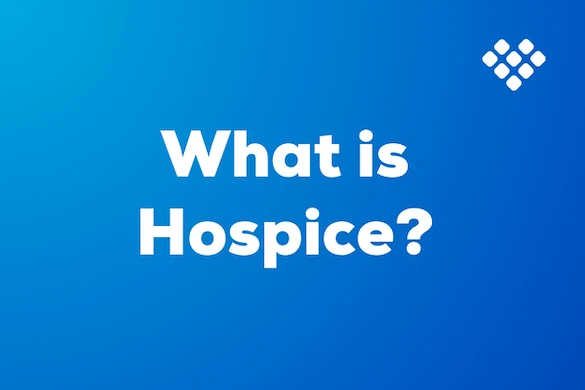
Top Questions to Ask Hospice Care Providers
It’s essential to ask the right questions to ensure that your loved one will receive the best care possible. Below are some key questions that will help guide your conversation with potential hospice care providers.

Questions to Ask Hospice Providers
No signup required. Just click, print, and use it during your search.
Choosing a hospice care provider is a deeply personal and significant decision. Hospice care is designed to support individuals with life-limiting illnesses and their families during a challenging time, focusing on comfort rather than cure. Here are some key questions that will help guide your conversation with potential hospice care providers.
Key Takeaways



Questions to Ask Hospice Providers
1 | What is Hospice Care, and How is it Different from Palliative Care?
Understanding the distinction between hospice and palliative care is crucial. Hospice care is typically for patients who have a prognosis of six months or less to live and have decided to stop curative treatments. Palliative care, on the other hand, can begin at any stage of a serious illness and is provided alongside treatments intended to cure or manage the disease.
Ask the provider how they approach care for individuals at the end of life and whether they offer both hospice and palliative care services. Understanding this distinction will help you make an informed choice about the care pathway that’s right for your loved one.
2 | Is Your Hospice Care Accredited & Certified?
Accreditation and certification indicate that a hospice provider meets specific standards of care and is regularly reviewed by an external agency. Ask whether the hospice is accredited by organizations such as the Community Health Accreditation Partner (CHAP) or The Joint Commission.
Additionally, verify that the hospice is Medicare-certified, as this ensures that they meet federal standards and that services will be covered by Medicare for eligible patients.
3 | What Services are Included in Hospice Care?
Hospice care typically covers a wide range of services, from medical care to emotional and spiritual support. Ask the provider to detail the services they offer, such as:
- Pain and symptom management
- Nursing care
- Medication management
- Medical equipment and supplies
- Emotional and spiritual counseling
- Bereavement support for the family
Understanding the full scope of services will give you clarity on what to expect and what might be covered by insurance or Medicare.
4 | Who Will Be on the Hospice Care Team?
Hospice care is provided by an interdisciplinary team, typically including:
- A doctor or medical director
- Nurses
- Social workers
- Chaplains or spiritual counselors
- Home health aides
- Volunteers
Ask the provider how the team works together and what each member’s role will be in your loved one’s care. Additionally, inquire about their qualifications and how they will communicate with each other and with you.
5 | How are Pain & Symptoms Managed?
One of the primary goals of hospice care is to provide comfort and manage symptoms. Ask the provider about their approach to pain and symptom management, including:
- What medications are used?
- How often will pain levels be assessed?
- Are alternative therapies, such as massage or aromatherapy, available?
It’s essential to feel confident that the hospice provider has a robust plan for keeping your loved one comfortable.
6 | How Often Will Hospice Staff Visit?
The frequency of visits by hospice staff can vary depending on the patient’s needs. Ask the provider how often nurses, aides, and other members of the care team will visit. Also, inquire whether there is flexibility to increase visits if the patient’s condition changes or during times of greater need.
7 | What Support is Provided for the Family?
Hospice care is designed to support the family as well as the patient. Ask what services are available for caregivers and loved ones. These generally include counseling services, respite care, bereavement support, and training on how to provide care. Since family members often play a critical role in providing day-to-day care, understanding the resources available to them is crucial.
8 | Is Respite Care Available?
Caregiving can be physically and emotionally demanding. Respite care provides temporary relief for caregivers by allowing them to take a break while ensuring that their loved one continues to receive care. Ask if respite care is available, how often it can be used, and where it is provided (e.g., in-home or at a facility).
9 | How are After-Hours or Emergency Situations Handled?
Emergencies or urgent care needs can arise unexpectedly. Ask about the hospice’s protocol for handling after-hours situations, including:
- Is there a 24/7 on-call nurse or physician available?
- How quickly can someone be reached if an emergency occurs?
- What is the process for adjusting medications or care in a crisis?
It’s essential to know that help will be available whenever it’s needed.
10 | What is the Process for Admission?
Understanding the admission process will help you prepare for your loved one’s transition into hospice care. Ask about the required paperwork, timelines, and who will coordinate with your loved one’s primary doctor to ensure a smooth transfer. Knowing how long it takes to get started and what information is needed can reduce stress during this process.
11 | How is the Care Plan Developed and Monitored?
Hospice care plans should be personalized and regularly updated to meet the evolving needs of the patient. Ask how the hospice team will develop a care plan, how often it will be reviewed, and who will be involved in making decisions. It's important to know that the plan will be flexible enough to adapt to changes in the patient's condition.
12 | Can Care Be Provided at Home & What Does That Look Like?
Many families prefer hospice care to be provided at home, in a familiar and comfortable setting. Ask how home care is structured and what services will be available. Specifically, inquire about:
- How often caregivers will visit
- What equipment or supplies will be needed
- Whether the home environment will need modifications to accommodate care
Understanding how care will be delivered at home will help you prepare both practically and emotionally.
13 | What if We Decide to Discontinue Hospice Care?
While hospice care is generally for those nearing the end of life, some patients improve or decide to pursue curative treatments again. Ask about the process for discontinuing hospice care and transitioning to other care options if needed. It’s important to know that hospice care can be flexible based on the patient's changing needs and preferences.
14 | Are Spiritual & Emotional Needs Addressed?
Hospice care is holistic, focusing not only on physical symptoms but also on emotional and spiritual well-being. Ask about the support available for meeting these needs, whether through chaplains, counselors, or volunteers. Additionally, inquire about how cultural and religious preferences will be respected.
15 | How is End-of-Life Care Provided & What Happens When the Time Comes?
One of the most challenging aspects of hospice care is planning for end-of-life care, which generally occurs in the last 72 hours before a person dies. Ask how the hospice team will support both the patient and family during this time. Specifically, inquire about:
- What steps will be taken when the patient is actively dying
- How will the family be involved or supported
- What happens after the patient passes away, including bereavement services
Conclusion
Understanding hospice services and asking the right questions when selecting a hospice care provider is essential for ensuring your loved one’s comfort, dignity, and well-being in their final days. Each question addresses a different aspect of care and helps you to make an informed and compassionate choice that reflects your family’s needs and values.
Find Hospice Providers on Senior Care Finder
For elderly individuals, it’s important to have the resources to find effective senior care services and senior living centers. Senior Care Finder is committed to providing all of the best resources to do this, by offering a wide range of resources in our directory. Explore our Hospice Services page to begin your search to find sustainable and affordable solutions for senior living.
